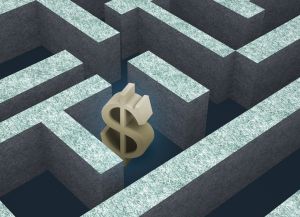 The field of forensic accounting has long intrigued aspiring accountants. A big part of what forensic accountants do is examining financial records for fraud to find evidence of crimes such as embezzlement, tax evasion, and terrorism. Forensic accounting is certainly a particularly interesting and financially rewarding discipline of accounting, but it is also one that requires a good deal of preparation, including a formal college education and experience.
The field of forensic accounting has long intrigued aspiring accountants. A big part of what forensic accountants do is examining financial records for fraud to find evidence of crimes such as embezzlement, tax evasion, and terrorism. Forensic accounting is certainly a particularly interesting and financially rewarding discipline of accounting, but it is also one that requires a good deal of preparation, including a formal college education and experience.
An Undergraduate Accounting Degree and Beyond
The path to becoming a forensic accountant begins with earning an undergraduate degree in accounting. Because forensic accountants must generally be Certified Public Accountants (CPAs), an undergraduate education for aspiring forensic accountants will generally take at least five years or 150 semester hours of full-time study rather than the four years or 120 semester hours required of most other undergraduate majors, the United States Bureau of Labor Statistics reported.
After completing the required amount of semester hours, aspiring forensic accountants can begin taking the CPA exam and search for entry-level work in auditing. To develop their skills in forensic accounting and build up their résumés in the field, candidates can enroll in master’s degree programs in forensic accounting. Master’s degree programs in forensic accounting cover both theory and practical application of important course material such as investigation of evidence and presentation of forensic accounting evidence in a court of law.
In this program, you will have the opportunity to gain an understanding of business information and financial reporting systems, investigation and analysis of financial evidence, digital forensics, and analysis of complex financial transactions that lead to fraud.
Exams, Certifications, and Experience
The first and most essential professional examination that an aspiring forensic accountant must take is the CPA exam. Passing this four-part test is required for any CPA, including forensic accountants. Aspiring forensic accountants can begin gaining relevant work experience even before completing the CPA exam in entry-level auditing or accounting positions.
Education and professional experience are requirements for securing a position as a forensic accountant. Earning the right credentials and certifications can improve a forensic accountant’s career prospects. There are numerous opportunities for earning relevant professional certifications. For example, the American Institute of CPAs offers a Certified in Financial Forensics credential for experienced forensic accountants. The Association of Certified Fraud Examiners offers a Certified Fraud Examiner credential.
Most aspiring forensic accountants pursue the career because they find the opportunity to use their analytical skills for seeking out white-collar crime, terrorism, or hidden money to be an interesting career path. However, forensic accountants make good money, as well. The average annual salary for forensic accountants is $74,500. Of course, forensic accountants who have an advanced education, extensive experience and impressive credentials have the best job prospects and the chance to attain higher-paying positions than less qualified forensic accountants. By committing to your forensic accounting education, seeking out challenging work experience opportunities and pursuing professional certifications, you can prepare yourself for a successful career in this exciting field of accounting.
